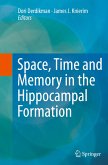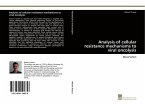Processes of functional plasticity, i.e. long-lasting changes of the strength of synaptic connectivity in response to relative short-lasting afferent stimulation, are the most likely mechanisms underlying memory storage in the adult brain. The best studied models of functional plasticity are long-term potentiation (LTP) and long-term depression (LTD). Rolipram, a specific type IV-specific cAMP phosphodiesterase (PDE) inhibitor, was used in my initial studies to investigate its effect on late plastic events during functional CA1 plasticity in rat hippocampal slices in vitro. In the later part of my studies, I was interested to investigate the question of what exactly is the putative nature of the synaptic tag. Are there specific ´tags´ for LTP and LTD?







